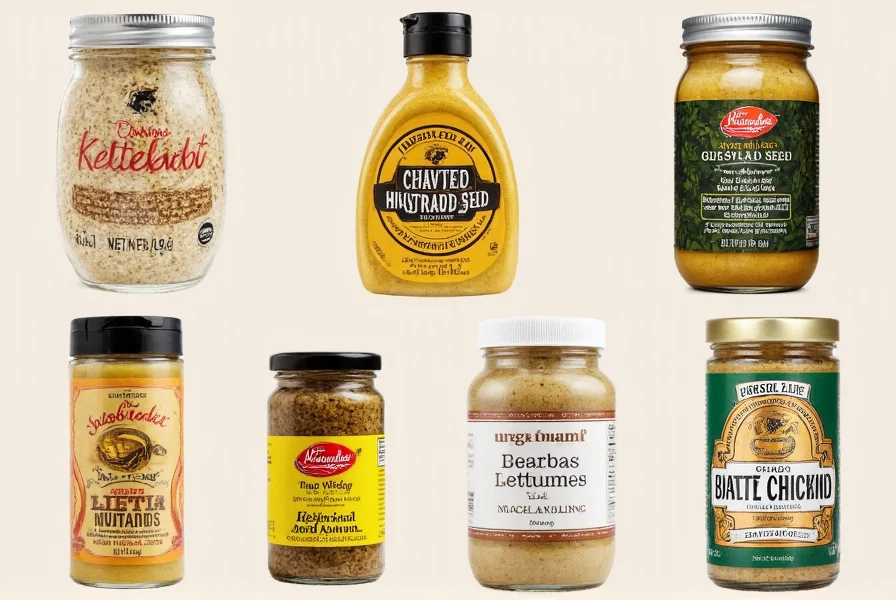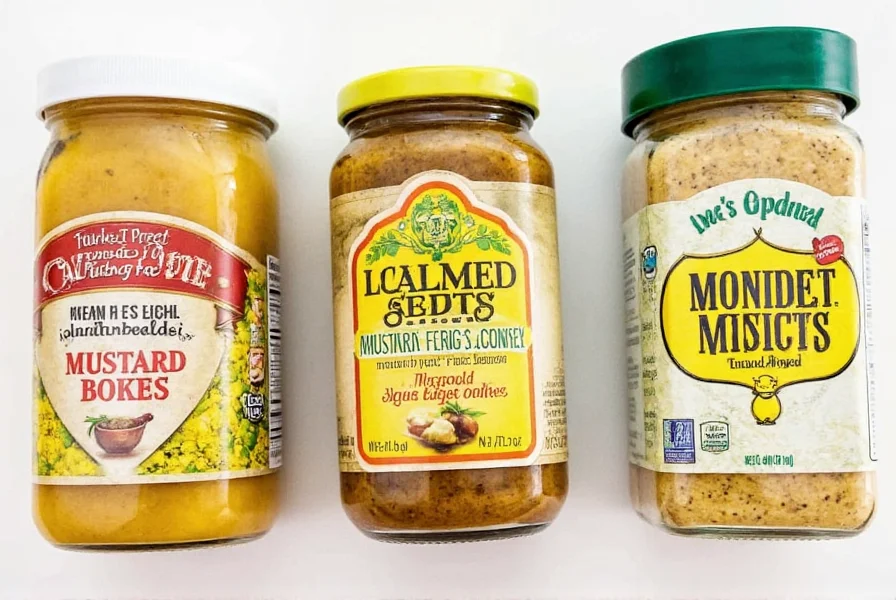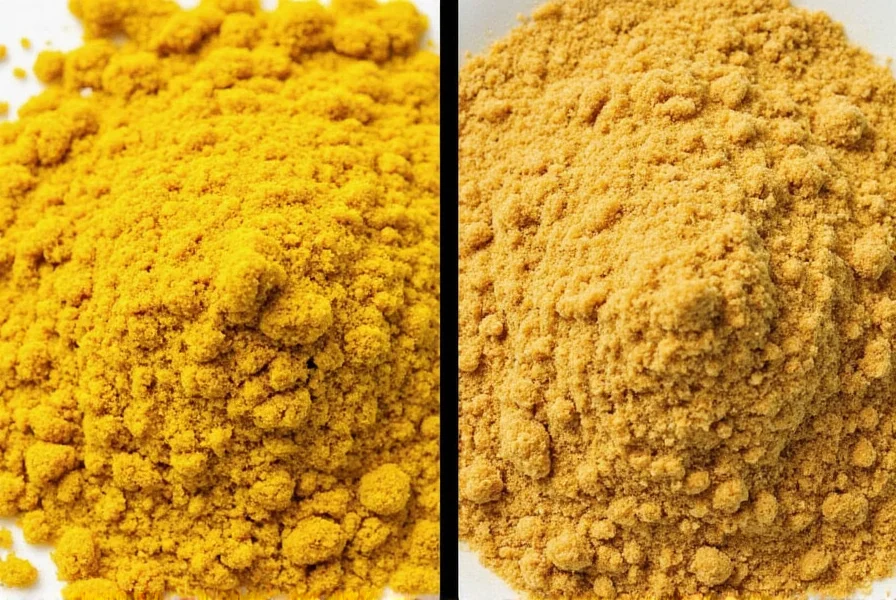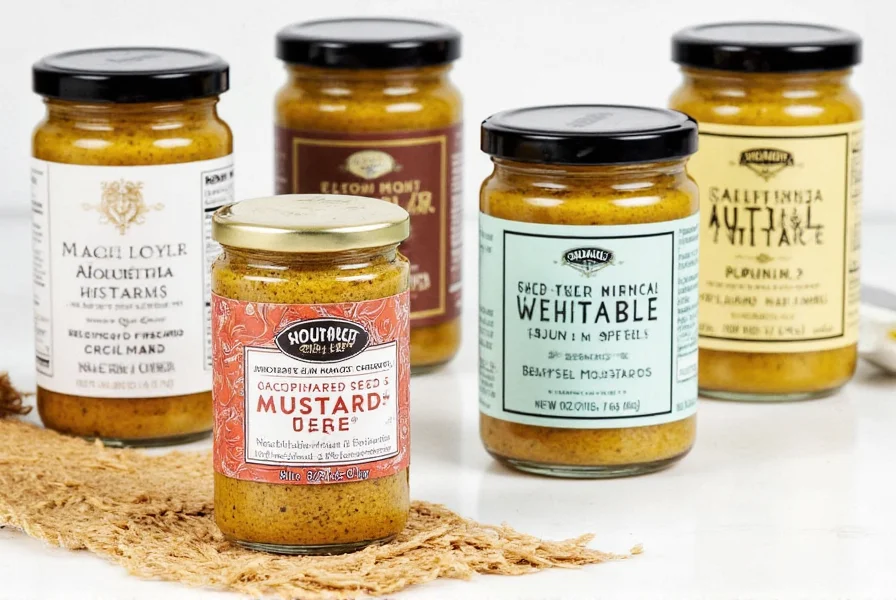Looking for the best mustard seed mustards to elevate your cooking? You've come to the right place. This guide details the top 6 mustard seed mustards, their unique flavor profiles, and expert uses for every dish—from sandwiches to gourmet sauces. We've tested and compared popular brands to help you choose the perfect mustard for any recipe.
| Type | Flavor Profile | Best For | Top Brands |
|---|---|---|---|
| Yellow Mustard | Mild, tangy, slightly sweet | Burgers, hot dogs, American comfort food | French's Classic, Heinz |
| Dijon Mustard | Sharp, clean, complex | Sauces, vinaigrettes, gourmet cooking | Grey Poupon, Maille |
| Whole Grain Mustard | Rustic, textured, mildly spicy | Charcuterie boards, braised meats, artisanal dishes | Maille, Boar's Head |
| Spicy Brown Mustard | Earthy, bold, moderately hot | Reubens, deli sandwiches, pickling | Stubb's, Gulden's |
| Honey Mustard | Sweet-meets-spicy fusion | Dips, chicken tenders, party snacks | Plochman's, Annie's Naturals |
| Chinese Hot Mustard | Fiery, sinus-clearing | Dipping sauces, dumplings, bold flavor seekers | |
| Creole Mustard | Smoky, tangy, with whole seeds | Gumbo, jambalaya, seafood dishes | Zatarain's, Emeril's |
Why Mustard Seed Mustard Matters in Cooking
Mustard seed mustard isn't just for sandwiches. When used thoughtfully, it brings depth, brightness, and contrast to dishes:
- Enhances meat flavors in marinades and glazes
- Adds zesty kick to sauces and dressings
- Balances fatty foods like burgers and sausages
- Works as an emulsifier in vinaigrettes and mayonnaise-style sauces
How to Use Mustard Seed Mustard Like a Pro
Here's how to go beyond the sandwich and make mustard seed mustard your kitchen MVP:
- Use as a Marinade Base: Mix Dijon mustard with olive oil, garlic, and herbs for a killer pork or chicken marinade.
- Add Depth to Sauces: A dollop of whole grain mustard can add texture and complexity to creamy mushroom sauce or béarnaise.
- Elevate Grilled Cheese: Spread spicy brown mustard on the inside of your bread for a hidden punch of flavor.
- Create Zesty Dressings: Blend yellow mustard with honey, apple cider vinegar, and olive oil for a fast coleslaw dressing.
- Glaze Meats: Combine mustard with brown sugar and a splash of soy sauce for a sticky-savory ham glaze.

Buying Guide: Choosing the Right Mustard Seed Mustard
With so many options lining the grocery store shelves, choosing the right mustard seed mustard can feel overwhelming. Here's a handy guide to help you pick the perfect jar for your needs:
| Product | Features | Advantages | Best For | Occasions |
|---|---|---|---|---|
| French's Classic Yellow Mustard | Mild flavor, smooth texture | Affordable, versatile, kid-friendly | Everyday use, school lunches, ballpark eats | Weekend BBQs, quick meals |
| Grey Poupon Dijon Mustard | Smooth, aromatic, bold | Luxurious mouthfeel, high-quality ingredients | Gourmet sandwiches, sauces, upscale entertaining | Dinner parties, fancy brunches |
| Maille Whole Grain Mustard | Chunky texture, rustic flavor | Artisan quality, visually appealing | Cheese boards, French-inspired dishes | Cheese tastings, charcuterie nights |
| Stubb's Spicy Brown Mustard | Smoky, bold, moderately spicy | Perfect for Reubens and barbecue lovers | Deli meats, grilled cheese, Texas toast | Diner-style dinners, football nights |
| Plochman's Honey Mustard | Balance of sweet and spicy | Familiar, crowd-pleasing flavor | Dipping sauces, chicken nuggets, salads | Kid-friendly meals, casual get-togethers |
| Zatarain's Creole Mustard | Smoky, tangy, with whole seeds | Authentic Louisiana flavor | Gumbo, jambalaya, seafood dishes | Cajun cooking, seafood boils |
| Yin's Chinese Hot Mustard | Fiery, sinus-clearing | Authentic Asian flavor profile | Dumplings, spring rolls, Asian-inspired dishes | Chinese New Year, sushi nights |

Organic & Specialty Options
If you're looking for organic or small-batch mustards, consider brands like:
- Bee Raw Organic Mustard: Smooth and rich with organic ingredients.
- Annie's Naturals Organic Honey Mustard: Clean label, perfect for health-conscious eaters.
- Brassica & Brame Mustard: Handmade in France with traditional methods.
Frequently Asked Questions About Mustard Seed Mustard
What's the difference between mustard seeds and mustard seed mustard?
Mustard seeds are the raw ingredient - small seeds from the Brassica plant family. Mustard seed mustard is the prepared condiment made by grinding these seeds and mixing them with liquid (vinegar, water, or wine) and other ingredients. The grinding process releases enzymes that create mustard's characteristic pungency.
How long does mustard seed mustard last once opened?
Most commercial mustard seed mustards will last 1-2 months in the refrigerator after opening. The high acidity from vinegar acts as a natural preservative. You'll know it's gone bad if you notice mold, a significant change in color, or an off smell. Some artisanal or homemade mustards with fewer preservatives may have shorter shelf lives.
Can I make my own mustard seed mustard at home?
Absolutely! Homemade mustard is surprisingly easy. Simply combine ground mustard seeds with vinegar, water, and any additional seasonings you prefer. The ratio is typically 1 part mustard seeds to 1 part liquid. Let the mixture sit for 1-2 days to develop flavor, as the enzymes need time to activate. You can adjust the coarseness of the grind for different textures.
Why does mustard have that distinctive sharp taste?
The sharpness comes from a chemical reaction. When mustard seeds are crushed and mixed with liquid, an enzyme called myrosinase reacts with compounds called glucosinolates. This creates pungent isothiocyanates - the same compounds found in horseradish and wasabi. The type of liquid used affects the heat level; acidic liquids like vinegar slow the reaction, creating milder mustard, while water creates more heat.
Is mustard seed mustard gluten-free?
Most traditional mustard seed mustards are naturally gluten-free, as they're made from seeds, vinegar, and spices. However, some specialty mustards might contain wheat-based ingredients or be processed in facilities with gluten. Always check the label if you have celiac disease or severe gluten sensitivity. Many brands now specifically label their products as gluten-free.
How should I store mustard seed mustard?
Unopened mustard seed mustard can be stored in a cool, dark pantry. Once opened, it should be refrigerated with the lid tightly sealed. The cold temperature slows down the enzymatic reactions that can cause flavor changes over time. Properly stored, most commercial mustards maintain quality for 1-2 months after opening.
What makes Dijon mustard different from other types?
Dijon mustard originated in Dijon, France, and traditionally uses brown or black mustard seeds with white wine or verjuice (unripe grape juice) instead of vinegar. It has a smooth texture, complex flavor, and distinctive sharpness without being overly hot. True Dijon mustard follows specific production methods, though many "Dijon-style" mustards are made worldwide with slight variations.
Can mustard seed mustard go bad?
While mustard has excellent shelf stability due to its acidity, it can eventually degrade in quality. Look for signs like mold growth, significant separation that doesn't reincorporate when shaken, dramatic color changes, or off odors. The flavor may also mellow over time. If any of these occur, it's best to discard the mustard. Properly stored, most commercial mustards remain safe and flavorful for months after opening.
Conclusion
Whether you're slathering it on a hot dog or blending it into a velvety sauce, mustard seed mustard deserves a starring role in your spice arsenal. It's affordable, versatile, and packed with personality. The next time you reach for that yellow bottle, remember: there's a whole world of flavor waiting to be explored.

So go ahead — stock your pantry with a few different mustard seed mustards. Taste them, experiment with them, and discover how they can transform even the simplest dish into something unforgettable.











 浙公网安备
33010002000092号
浙公网安备
33010002000092号 浙B2-20120091-4
浙B2-20120091-4